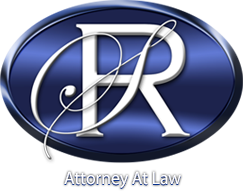I Am Arrested, What is Next


Anyone who has been arrested should remember 3 very important things
- WHAT YOU SAY CAN HURT YOU.
- NEVER DISCUSS YOUR CASE WITH CELLMATES OR ON THE JAIL PHONE.
- INSIST THAT YOUR ATTORNEY BE PRESENT PRIOR TO TALKS WITH INVESTIGATORS OR OTHER LAW ENFORCEMENT.
If you or someone you know has been arrested, the first and most important thing to be aware of is the impacts of your statements. You may offer to assist in the investigation, however, request that you would like to have an attorney present. If you or someone you know is jailed, DO NOT UNDER ANY CIRCUMSTANCES talk about the case on the jail phones or to others at the jail. The phone calls ARE RECORDED AND ARE MONITORED and investigators question cell mates. Over the course of my career I have seen numerous cases which were completely blown due to statements made on the jail phone or to others at the jail.
It is important to remember, if you are being investigated by law enforcement or just arrested , time is important. There is a very narrow window of time of which your attorney can work with the law enforcement and the State Attorney's Office on your behalf possibly reducing or avoiding criminal charges all together. Furthermore, you never want to give any statements without your attorney present under any circumstances. It is ok to cooperate, however, only under the supervision and protection of your attorney.
Depending on the severity of your crime you may be issued a criminal citation instead of going to jail. If the defendant has been arrested, they generally will have bail set at that time. In some cases, such as a violation of probation, you may be held under a "No Bond". This means you cannot bond out until a Judge grants you a bond. In addition, if you are charged with a crime that carries life in prison or the death penalty, you may also be denied bond. These cases may include, murder, sexual battery, kidnapping, robbery, etc.
In some cases you may request a bond reduction at your first appearance; however, you may need to file a bond motion. To reduce your bond the Judge must be convinced that you will appear in court. During this hearing you may be asked several questions such as: do you have family, a job in the area, if you have bonded out before and appeared on time, where you live, and if you have a criminal record. In some cases, if you are not charged with a serious crime and you have a place to live and work the judge may release you on your own recognizance or lower your bail amount.
Your "First Appearance" is usually within 24hrs of your arrest. At this hearing the judge will advise you of the charge(s) for which you have been arrested. The judge then decides if there was sufficient evidence to arrest you. The judge then will ask you if wish to be represented by an attorney and if you have one. If you cannot afford to hire an attorney then the court will appoint one to represent you if qualify you for a public defender. The judge then will decide if bail is needed and if so the amount and terms. The last order of business is to set your case for an arraignment hearing.
The arraignment is not a trial, but a hearing. If you have private counsel, in most cases, you do not have to attend this hearing and your attorney will enter your plea. If you attend, the judge usually reads the charges against you and will then follow up on your representation. If you cannot afford an attorney and qualify for the public defender one is assigned to you. At this time your attorney will enter a plea for you. If you enter a plea of not guilty, the attorney will then request a trial by jury or by judge.
After your arraignment, your case begins and your attorney requests discovery. At this time, it is very important that you are involved in your case providing all the information your attorney needs to get started. If you have witnesses, you will want to provide your attorney a list which includes the witness's contact information. Many private attorneys may request that you have certain information such as your arrest report when you first meet with them. Once you have hired an attorney, the attorney will manage your case from that point. If there is any activity in your case our office will send you copies of motions, pleadings, and other paperwork in your case. If you have new information in your case, you should always contact your attorney providing that information.
If you are out on bond, please remember; the most common basis for a bond violation is a new law violation. Even a charge such as driving with a suspended license can cause your bond to be revoked. This may mean that you, the client, will remain in jail until your trial. Obviously, it is very important that you comply with ALL LAWS while your case is pending so that you do not worsen your legal matters.
Maintain contact with your attorney and keep them informed of any change in your phone number or address. Be sure to be present for court hearings such as docket day and jury selection. A failure to appear for a court hearing (other than possibly arraignment) will usually violate your bond and it is likely that your bond will be revoked. In addition to going back to jail for violating your bond it is also possible that you may be charged with either contempt or an additional criminal charge for missing court. It is very important that you are aware of your upcoming court dates and most private attorneys will send you written notice of these dates.
At some point, generally once we have your discovery documents you and your attorney will sit down and review your case as well as all the possible options and defensive strategy. After this meeting you, the client, should understand the degree of the charge, the maximum possible penalties as well as any mandatory minimum penalty. The client should also be clearly aware of the consequences of any plea including whether there will be an adjudication of guilt, whether their drivers license will be suspended, and other conditions. For example; in sex cases a plea may include registering as a sex offender which could follow you for life. In summation, a sentence can have huge effects later on in life and should be clearly understood. Our goal in these situations is to look to the future to ensure that your rights are not only protected now, but later in life.


The information you obtain at this site is not, nor is it intended to be legal advice. You should consult an attorney for advice regarding your matter. We invite you to contact us and we welcome your calls, letters and electronic mail. Contacting us does not create an attorney-client relationship. Please do not send any confidential information to us until such time as an attorney-client relationship has been established.
Law Office of Shelley Guy Reynolds, PA
3 West Garden Street Suite 407
Pensacola, FL 32502
PH: (850) 434 1330
FX: (850) 434 3064
Email: shelley@shelleyreynolds.com
www.shelleyreynolds.com









